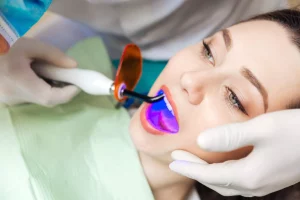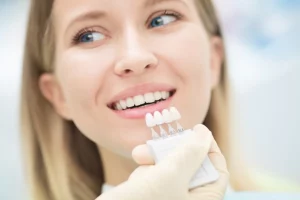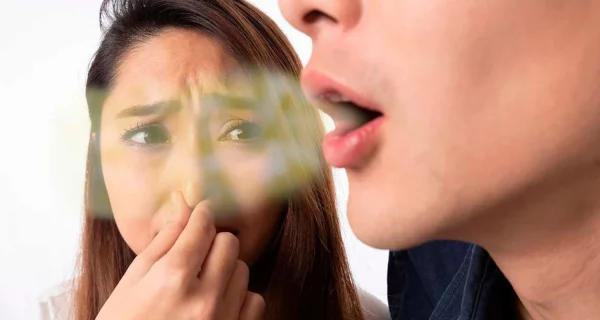Last Updated on: 2nd March 2026, 08:21 am
The most common causes of itchy gums include gingivitis (early gum disease), seasonal allergies, hormonal changes, dry mouth, and ill-fitting dental appliances. According to the ADA, itching gums that persist beyond one week should be evaluated by a dental professional, as they may signal the onset of periodontal disease.
If your gums itch and you can’t figure out why, you’re not alone. Itchy gums are one of the most common complaints we hear at Channel Islands Family Dental, and they can mean very different things depending on what’s actually going on inside your mouth. The good news: most causes are treatable, and many are preventable entirely.
In this guide, we’ll walk you through every major reason gums itch, the warning signs that signal something more serious, practical steps you can take at home right now, and exactly what our dental teams across Ventura, Oxnard, Newbury Park, Port Hueneme, and Santa Paula can do to bring you lasting relief.
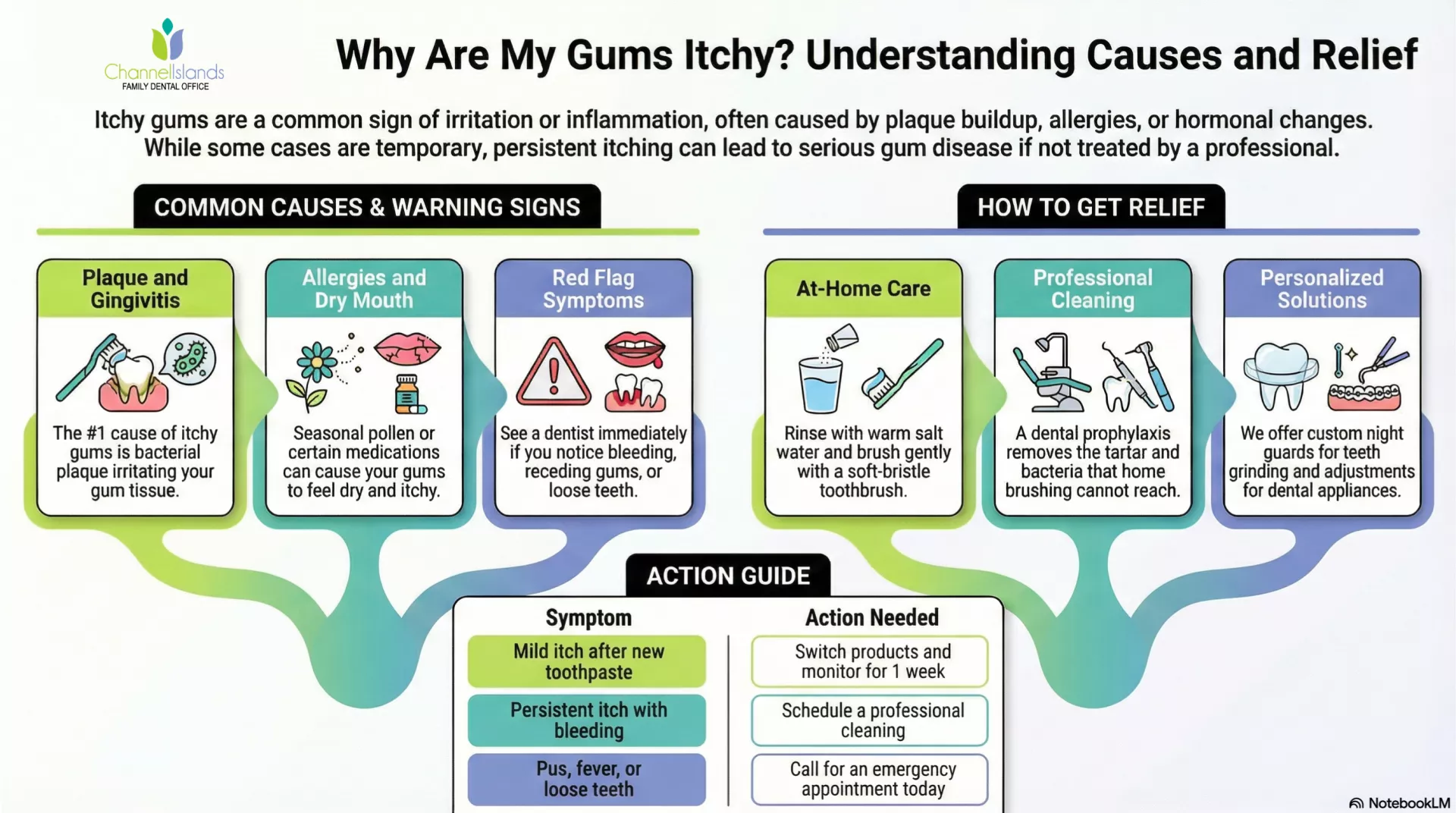
Table of Contents
ToggleWhat Are the Main Causes of Itchy Gums?
Healthy gum tissue should be firm, pale pink, and completely free of irritation. When your gums itch, your body is signaling that something is disrupting the delicate balance of your oral environment. Here are the most clinically significant causes:
1. Plaque Buildup and Gum Disease
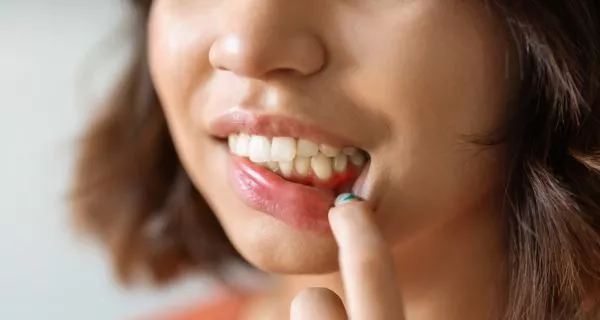
Gingivitis is the mildest and most reversible form of gum disease, and it is by far the most frequent reason patients experience itchy gum tissue.
- When you don’t brush or floss consistently, bacteria build up along your gum line and form a sticky film called plaque.
- That bacteria irritates your gum tissue, causing it to become red, swollen, and itchy. This early stage is called gingivitis.
- According to the CDC, nearly 42% of U.S. adults over age 30 have some degree of periodontal disease, and most don’t realize it until it’s already progressed.
The great news about gingivitis: it is 100% reversible with a professional cleaning and better brushing habits at home. Left untreated, gingivitis escalates into periodontitis, an irreversible condition that destroys the bone anchoring your teeth.
2. Seasonal and Food Allergies
Pollen counts in Ventura County spike each spring, and many residents notice their gums itch more during allergy season.
- Airborne allergens can irritate the mucous membranes lining the mouth, producing the same histamine response that causes sneezing and watery eyes, only localized to your gum tissue.
- Food allergies, particularly to raw fruits, vegetables, or tree nuts, can trigger a related reaction known as Oral Allergy Syndrome, where the lips, tongue, and gums become itchy or tingly shortly after eating.
- Certain ingredients in oral hygiene products, like sodium lauryl sulfate in toothpastes, alcohol in mouthwashes, or artificial flavorings, can also cause localized gum irritation in sensitive individuals.
3. Hormonal Changes
Estrogen and progesterone directly affect gum tissue sensitivity.
- During pregnancy, puberty, menopause, and even your monthly cycle, rising estrogen and progesterone levels increase blood flow to your gums and make them more reactive to bacteria and irritants. Gums that were fine before can suddenly feel swollen, tender, and itchy.
- Pregnancy gingivitis affects a significant proportion of expectant mothers and is characterized by swollen, easily bleeding, and itchy gums, typically beginning in the first trimester.
A 2024 review published in PubMed Central found that hormonal variations throughout a woman’s lifetime consistently correlate with changes in gingival health, underscoring the importance of more frequent dental check-ups during these periods.
4. Dry Mouth (Xerostomia)
Saliva is your mouth’s natural defense system. It washes away food, neutralizes acids, and keeps the bacterial population in check. When your mouth doesn’t produce enough saliva, your gum tissue loses its natural moisture and becomes dry, cracked, and irritated, which shows up as itching.
The NIH’s National Institute of Dental and Craniofacial Research (NIDCR) points out that hundreds of commonly prescribed medications list dry mouth as a side effect, including:
- Antihistamines and allergy medications
- Antidepressants
- Blood pressure medications
- Diuretics and bladder control drugs
Dehydration, mouth breathing, and conditions such as Sjögren’s disease can also significantly reduce saliva production, leaving your gums vulnerable to irritation.
5. Bruxism (Teeth Grinding and Clenching)

Many people grind or clench their teeth during sleep without ever knowing it. Over time, that repeated pressure puts serious mechanical stress on the ligaments and tissue surrounding your teeth.
The result: gums that feel sore, tender, and itchy, often described as an ache that seems to come from inside the gum, not just the surface.
Common signs you might be grinding your teeth include:
- Waking up with jaw soreness or headaches
- Tooth sensitivity that wasn’t there before
- Worn-down or chipped tooth edges
- A partner who mentions hearing grinding sounds at night
6. Dental Appliances That Don’t Fit Properly
Dental appliances, bridges, retainers, or orthodontic brackets that rub against the gum line create chronic friction injuries that cause persistent itching.
This is especially common in patients who have recently had a new prosthesis fitted or whose existing appliance has loosened over time due to bone resorption or wear.
Why Do My Gums Itch After Flossing?

Itchy gums after flossing are extremely common and usually a sign that your gum tissue is already inflamed from plaque buildup between your teeth, not that the floss is harming you.
When you begin a regular flossing routine after a gap, the initial irritation typically resolves within one to two weeks as the gums heal and tighten.
If itching and bleeding after flossing persist beyond two weeks, schedule an appointment so we can rule out early periodontal disease.
Red Flags: When Itching Gums Become an Emergency
Occasional mild gum itching is not always cause for alarm. However, certain accompanying symptoms demand prompt dental attention:
- Gums that bleed spontaneously or during gentle brushing
- Visible gum recession; teeth appearing longer than usual
- Persistent bad breath that does not resolve with brushing
- Pus, swelling, or an abscess along the gum line
- Teeth that feel loose or have shifted in position
- Fever combined with oral swelling (seek care the same day)
- Mouth sores or white patches that do not heal within two weeks
If you experience any of the above symptoms alongside itching gums, contact the Channel Islands Family Dental location nearest to you as soon as possible. Early treatment of periodontal disease is significantly more effective, and far less invasive, than treating advanced stages.
Can You Stop Itchy Gums at Home?
These tips can help you feel better while you wait for your dental visit:
- Rinse with warm salt water: Mix half a teaspoon of salt in a glass of warm water. Swish for 30 seconds, then spit. This helps reduce swelling and bacteria.
- Use aloe vera gel: Put a small amount on your gums to calm irritation.
- Apply a cold compress: Hold ice (wrapped in cloth) on your cheek for 10–15 minutes to reduce swelling and itching.
- Try clove oil: Use a small amount on a cotton swab and gently place it on the itchy area to numb it.
- Change your toothpaste or mouthwash: Use alcohol-free and fragrance-free products in case you have sensitivity.
- Drink more water: Water helps prevent dry mouth.
- Brush gently: Use a soft toothbrush and light pressure. Brushing too hard can make it worse.
Remember, these are temporary solutions. If the itching continues, see your dentist.
Professional Treatments at Channel Islands Family Dental
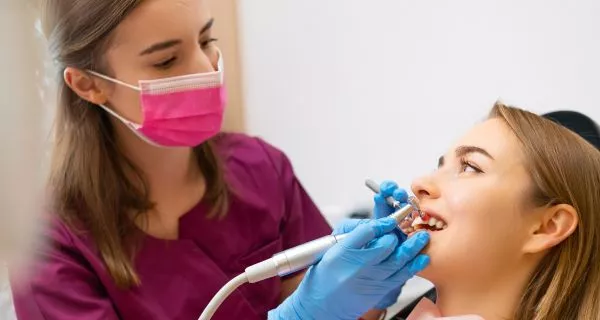
Home remedies may help for a short time, but they do not fix the main problem. Our clinical teams across Ventura County find the real cause and treat it the right way.
- Professional dental cleaning (prophylaxis): We remove tartar and bacteria that you cannot remove at home. For mild gum disease (Gingivitis), a good cleaning may be enough.
- Scaling and root planing (deep cleaning): If you have advanced gum disease (Periodontitis), we clean below the gum line to remove bacteria and help your gums heal.
- Appliance adjustment or refitting: If dentures, bridges, or retainers are causing friction-related itching, we adjust them so they fit comfortably.
- Custom night guard for bruxism: If you grind your teeth, we make a custom night guard to protect your teeth and reduce pressure on your gums.
- Dry mouth management: We recommend prescription-strength fluoride, saliva substitutes, or coordinate with your physician regarding xerogenic medications.
- Antifungal therapy: When itching is caused by oral candidiasis, we prescribe the appropriate antifungal treatment to clear the infection.
- Simple hygiene guidance: We show you how to brush and floss the right way to keep your gums healthy long term.
Preventing Gum Itch
The ADA’s guidelines for gum disease prevention are straightforward, and consistently effective when followed:
- Brush twice daily for two full minutes using a soft-bristle toothbrush and fluoride toothpaste.
- Floss at least once per day to remove interproximal plaque that brushing misses.
- Visit your dentist every six months for professional cleaning and a periodontal evaluation.
- Drink fluoridated water and eat a diet rich in vitamin C, which supports collagen in gum tissue.
- Avoid tobacco in all forms, the CDC identifies smoking as a leading risk factor for periodontal disease severity.
- Disclose all medications to your dentist so dry-mouth side effects can be managed proactively.
Replace your toothbrush every three to four months or after illness.
FAQs
Voice and Search Snippets (Q&A)
Referencias
1. CDC. (2024, May 15). About periodontal (GUM) disease. Oral Health. https://www.cdc.gov/oral-health/about/gum-periodontal-disease.html
2. Charles, S. (2025, November 14). Understanding the causes of an itchy mouth. Verywell Health. https://www.verywellhealth.com/itchy-mouth-5441601
3. Holland, K. (2017, August 23). Itchy gums. Healthline. https://www.healthline.com/health/dental-and-oral-health/itchy-gums
4. Michail, A., Almirza, M., Alwaely, F., & Arany, S. (2023). Anticholinergic burden of medications is associated with dry mouth and reflected in minor labial gland secretion. Archives of Oral Biology, 156, 105824. https://doi.org/10.1016/j.archoralbio.2023.105824
5. Sissons, C. (2017, September 29). What’s to know about itchy gums? https://www.medicalnewstoday.com/articles/319565







